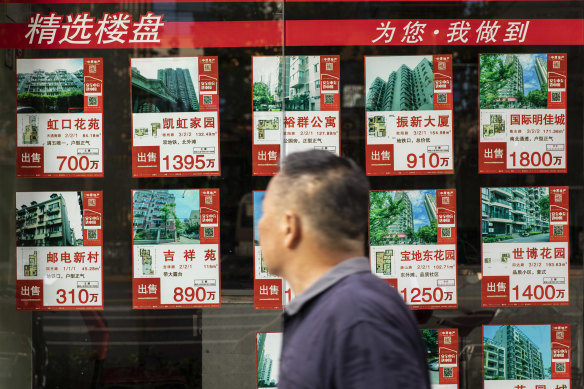Banks, probably smaller regional banks, would have major market value losses and capital shortfalls.
This would be similar to what happened in the US, which caused the failure of a number of smaller banks, including the high-profile Silicon Valley Bank. Silicon Valley was the largest US bank failure since the 2008 global financial crisis.
Chinese insurers, which offer fixed returns, would also stress capital adequacy.
The risk perceived by the authorities in the bond market is therefore a threat to systemic stability that could produce a major domestic financial crisis.
In recent weeks, trading volumes in longer-dated bonds have collapsed to a fraction of their levels from earlier this month, after authorities began warning about “illegal” speculative trading.
It would not be in China’s interest for bond market activity to simply dry up completely – this in itself would have very significant implications for banking and systemic stability, given the key role that bond markets play within financial systems .
The PBOC is fighting a battle it can’t win in the market unless it and Beijing’s economic policymakers can find a way to win in the real economy.
It might seem a paradox that the authorities are struggling to raise bond yields, even as the PBOC has cut its policy rates – albeit short-term – in an attempt to boost lending and economic activity.
However, this paradox highlights the source of the problem.
The collapse of China’s housing market – the implosion of a previous bubble – in which prices continue to fall, has had a chilling effect on consumer and business confidence and on China’s economic growth, particularly activity in the domestic economy, which has essentially stagnated.
This has been reflected in a steady rate of inflation, factory gate prices that have fallen for almost two years and fears of deflation.
Loading
Consumers are cautious and risk-averse, their spending is lean, and where their savings might once have gone into the housing market, they are now hoarding them.
With Chinese businesses also cautious, demand for credit is low. Last month, bank borrowers repaid more than banks in China lent for the first time in nearly two decades. There is a lot of liquidity swirling around in the system and few options for it to find a safe resting place.
The housing market, until it clearly stabilizes, is not one of them, and may not be for several years, given the housing glut and a declining population.
China’s stock market, which has fallen for the past three years, is down another 3.7% year to date.
That leaves the obvious paradise – for households, businesses and banks – of the government bond market. Liquidity has to go somewhere, and if China’s banks are to cope with inflows of deposits from households and businesses amid weak credit demand, the bond market is the only safe place they can turn.

China’s property crisis continues to ripple through the country’s economy. Credit: Bloomberg
Banks could try to reduce the flow of funds they receive by lowering deposit rates, but that would not solve the declining liquidity, it would simply move it elsewhere.
The risk for the PBOC and Beijing is that if they clamp down too severely on the flow of funds to banks and then to longer-dated bonds, they will divert liquidity into riskier assets and effectively force the bond bubble. market in other asset classes.
Loading
Banks would obviously rather lend than put their excess liquidity into low-yielding bonds, so the solution to the conundrum facing the authorities is obvious. They need to aggressively stimulate economic growth and credit demand to redirect liquidity to more productive and less systemically troubled areas.
Beijing, however, has consistently resisted pressure to launch large-scale stimulus to try to boost consumption, focusing instead on an export-led growth strategy in which exports have risen as triggers rejection from those savings on the part of the receiver. .
However, while the volume of these exports may have increased, their value has not kept pace. This appears to be a function of depressed domestic demand and consequent overcapacity in Chinese factories.
The PBOC is fighting a battle it can’t win in the market unless it and Beijing’s economic policymakers can find a way to win in the real economy. It is fighting a symptom of the underlying problem – slowing growth in the real economy – rather than the cause.
The Market Recap newsletter is a wrap-up of the day’s trading. Take it each of usek day afternoon.
#Chinas #bubble #tremors #Beijing